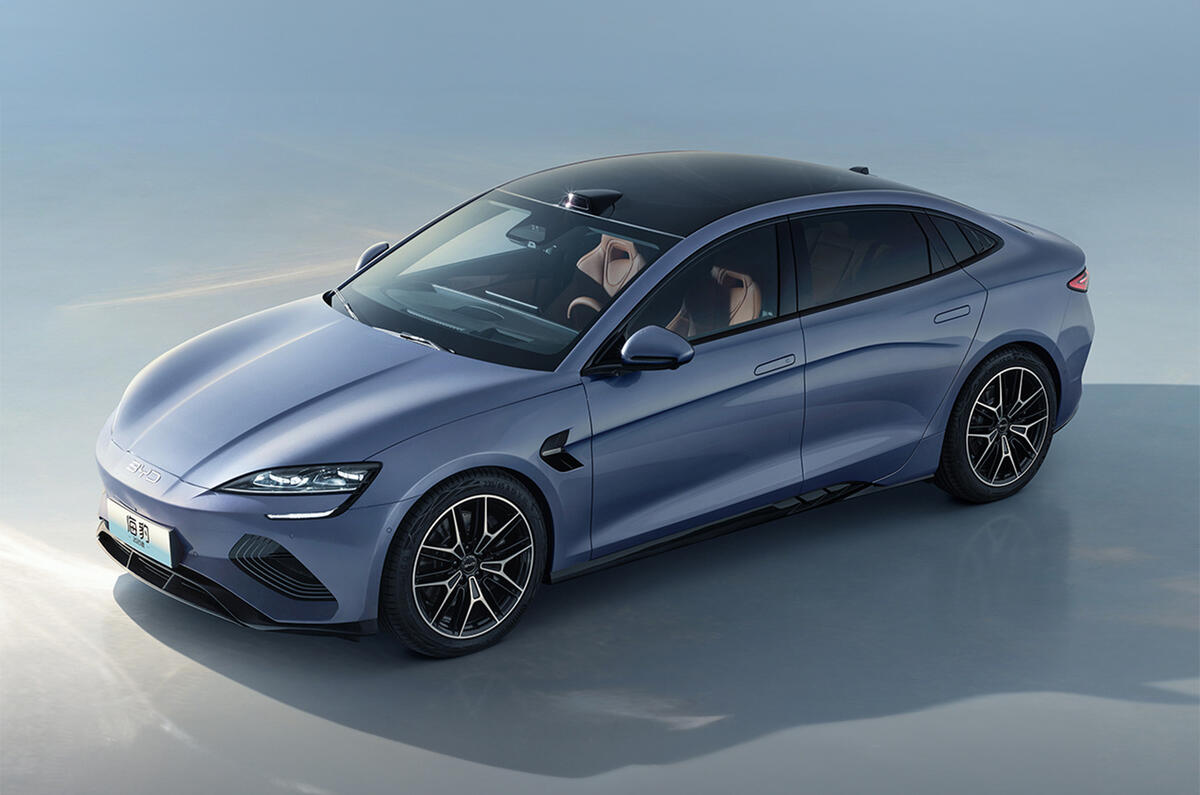The BYD Seal has received a significant update in its native China, bringing improved electricals, enhanced autonomous driving capabilities – but also a cut in range.
The headline change is a move from the existing car’s 400V electrical systems to an 800V architecture. This reduces the Seal’s 10-80% charging time from the current 37min to 25min, suggesting its peak rate has been increased from the current cap of 150kW – although BYD has yet to confirm the new limit.
Local media has reported that the more powerful electricals have also enabled the fitment of uprated adaptive dampers, which are said to improve ride comfort and body control.
The saloon can now be had with a roof-mounted lidar sensor that is claimed to bring a significant upgrade to its advanced driver assistance systems (ADAS). BYD highlighted improvements to its adaptive cruise control and automated parking systems in particular.
Two batteries are available, measuring 61.44kWh and 80.64kWh in capacity. Even the latter is down on the 82.5kWh battery currently offered in the UK. That cuts its range (as measured by the Chinese CLTC test cycle) from 435 miles to 404 miles – a 9% reduction.
This suggests the facelifted Seal could offer a WLTP range of around 320 miles, down from the 354 miles quoted for the existing version. BYD has yet to say why it opted for a smaller battery pack.
The powertrains are unchanged, with a choice of a single 308bhp motor on the rear axle or a dual-motor, four-wheel-drive configuration putting out a combined 523bhp.
Inside, the revised Seal gets a new steering wheel design with a flat bottom and leather upholstery across its boss. The centre console’s piano-black finish has been replaced with matt grey plastic, and the dashboard’s prominent air vents are gone in favour of a flat panel.
A spokesperson for BYD UK told Autocar that the facelift is expected to come here, but that a timeline has yet to be decided. The new Seal is already on sale in China.








Join the debate
Add your comment
Anyone actually driven one? I have. Very impressive car. Extremely fast. Very high quality. Looks good. But the first generation models lacked regen so you had to use the brakes a lot, which seems weird in an EV. For that reason, and a few others, I prefer a Tesla Model 3.
Well,how about making this battery tech available for all?, not just the £60-70K+ cars.
We all know how this works, new tech starts off in the expensive cars before being implemented in cheaper cars later down the line when the tech becomes cheaper.
It starts from 47k not 60k plus and the electric tech is nothing new and certainly not ahead of what Porsche or Tesla use.